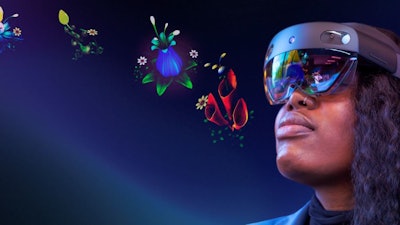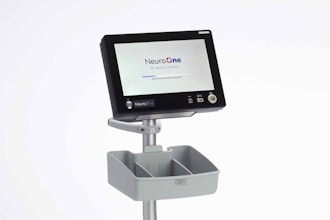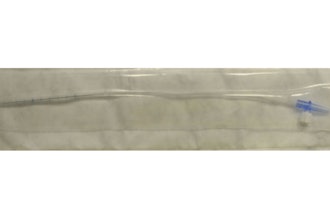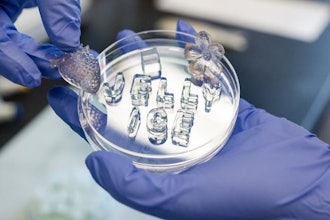
A new study published online and available in the February print edition of the journal Transfusion shows the mixed reality technology for use during blood donation created by Abbott and Blood Centers of America (BCA) helps ease donors' feelings of anxiety and boosts the likelihood they will return to give blood again.
Results from the pilot study reveal that mixed reality "is an innovative technology that holds promise to increase donor engagement, satisfaction, and retention," researchers said.
Abbott, the global leader in screening blood and plasma, partnered with Blood Centers of America, the largest blood supplier network in the U.S., to launch a mixed reality experience for blood donors in June 2023. It is now available at several donation sites across the country, including in New York, Houston and the Chicago area. More blood donation sites will offer the experience soon.
The Abbott and BCA mixed reality innovation is an immersive digital experience designed to improve the blood donation process, attract new donors and motivate a younger generation to give blood. Donors wear lightweight mixed reality headsets to visit a digital world while remaining fully aware of their real-world surroundings. The effort aims to address the global challenge of sustaining a reliable blood supply.
The pilot study examined the experiences of 282 blood donors who tried mixed reality at 54 collection sites in Houston and the Quad Cities area in Iowa and Illinois.
Of the 142 donors who reported pre-donation anxiety, 68.4% said the use of mixed reality during donation decreased their reported anxiety. The top reported causes of pre-donation anxiety were fear that donation would hurt, fear of feeling badly after donating, fear of needles, fear of fainting and fear of the unknown.
For donors who tried mixed reality while donating, 89.2% said they wanted to come back to donate again.
"We found that using mixed reality while donating blood helps many donors relax and decreases stress," said Theodore Kieffer, MD, U.S. area medical director for Abbott's transfusion business and a co-author of the study. "It's encouraging to see this innovation improve the blood donation experience and potentially inspire a younger generation to become donors."
The mixed reality experience allows blood donation professionals to safely conduct the donation and interact with donors at every step of the process. Because the mixed reality glasses are transparent, donors' eyes are always visible during donation to ensure constant monitoring and evaluation.
The mixed reality experience was designed based on research that natural settings are the most preferred environment as donors give blood. Participants visit a whimsical virtual garden while listening to soothing music, moving a cursor with their eye movement and planting seeds that grow into colorful trees and flowers.
The innovation was designed to help boost the sustainability of the nation's blood supply and attract younger people since blood centers have lost about 30% of donors under the age of 30 over the last decade. On average, only 3% of the eligible U.S. population donates blood each year.
In the pilot study, 54% of donors with baseline reported anxiety said they would use mixed reality again, with the highest future interest in young donors.
"The adoption of mixed reality in blood donation is a significant innovation, particularly for attracting new donors. By making the donation process more engaging and less intimidating, this innovation can play a crucial role in increasing the blood supply," said Jennifer Kapral, senior vice president at Blood Centers of America and a co-author of the study. "Mixed reality helps modernize the donation experience and also potentially increases the frequency and number of younger donors. It can really make a difference to get more people interested in donating and making it more fun when they do."
Mixed reality is part of Abbott and BCA's broader, ongoing effort to energize younger people to donate blood, motivate first-time donors and cultivate a new generation to help sustain the nation's blood supply. In 2023, the combination of those efforts helped increase donations 11% among 16-24 year olds.
The pilot study was conducted at sites operated by Impact Life of Davenport, Iowa, and Gulf Coast Regional Blood Center in Houston during February and March 2023. Researchers affiliated with Stanford University and Stanford Blood Center, Johns Hopkins University and the Southern Illinois University School of Medicine, Abbott, Blood Centers of America, Impact Life and Gulf Coast Regional Blood Center conducted and authored the study.






















